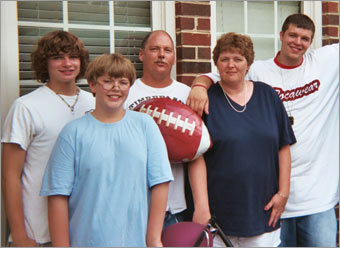In July 2005, Mike and Rhonda Bower purchased a new home in Monroe, N.C. They'd used their savings for the down payment. With their eldest son off to college that fall, "we needed extra money to catch up," says Rhonda, 40. She and Mike, 44, applied for a personal loan at their bank but were turned down because they'd just taken on a big mortgage.
"We didn't feel we had a lot of choices," says Rhonda. They turned to the Internet, where an outfit called Unifirst Financial approved an $8,000 loan.
One catch: The Bowers would have to wire collateral of $1,497 to an address in Canada. "We never heard of putting money down to borrow money," says Rhonda. Skeptical, Mike called Unifirst and was told he need send only $900. He did.
Two days later Unifirst said he'd been misinformed - he had to send the rest. Having already sunk $900 into the deal, he did as told. The Bowers say they never got the loan, nor did they ever see that $1,497 again. (Attempts by Money Magazine to contact Unifirst were unsuccessful.)
It appears that the Bowers fell for a classic "advance fee" fraud, also used in lottery scams and Nigerian e-mail fraud. From the Bowers' initial contact with Unifirst, the deal was loaded with red flags, such as the lender's foreign address and the demand that money be wired.
HOW NOT TO BE A SUCKER Bear in mind that while financial distress may make you feel poorer, it can actually make you more attractive to a con artist because it leaves you vulnerable. So get help from sources you know are legit. If debt is the problem, for example, let your creditors know you're in danger of falling behind and renegotiate, rather than grasping for a miracle solution.
The Bowers, in the end, wound up getting the loan they needed from a family member. They only wish they had done that in the first place.

DON'T act rashly when stressed about money
|
|
